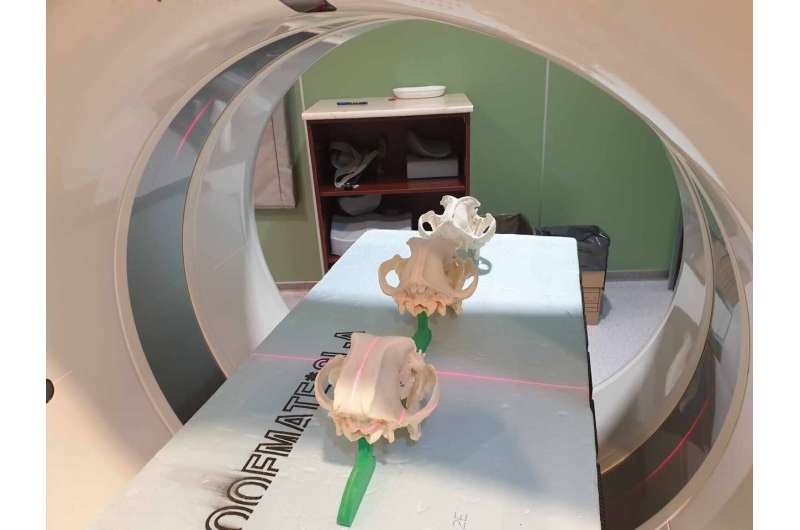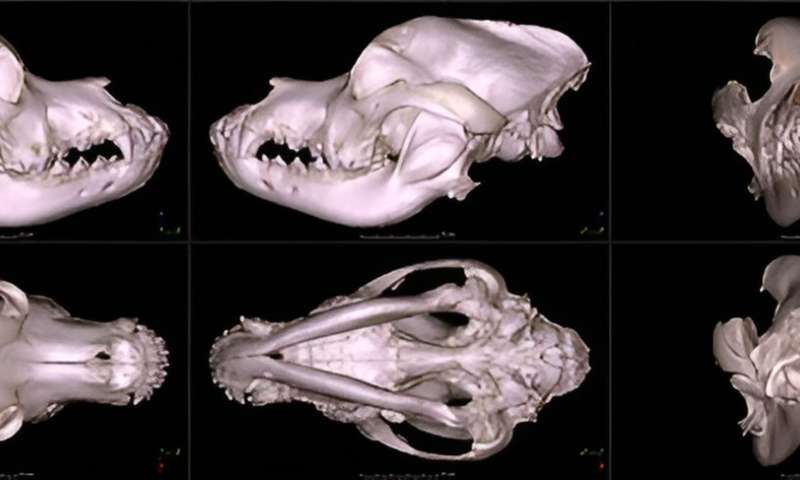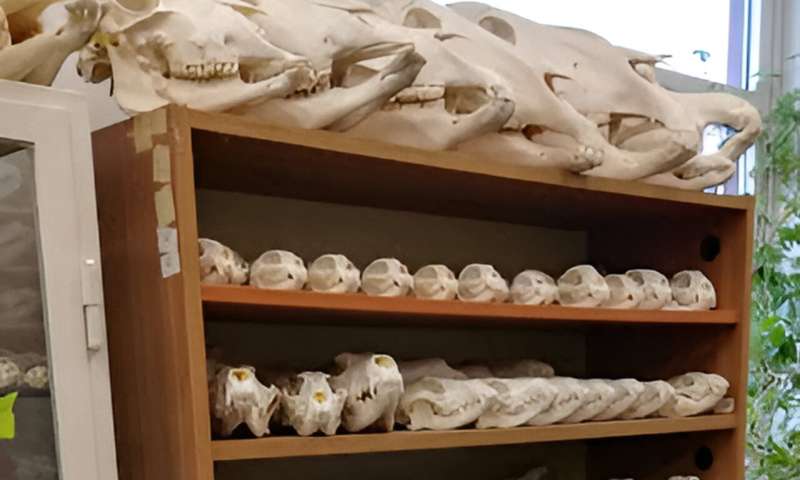
The ELTE Eötvös Loránd College is residence to the skulls of greater than 150 canine breeds and different animals. To make this distinctive assortment accessible to all, researchers digitized the skulls of 431 canine, cats and wild relations. The database can be utilized for instructional and analysis functions.
The database was published within the journal Scientific Knowledge.
Tibor Csörgő, a researcher at ELTE, has been amassing animal skulls for many years to show anatomy to biologists. The form of the cranium varies significantly between species and breeds, particularly in canine, the place greyhounds have lengthy skulls and the now standard French bulldogs have rounded skulls, for instance.
A cranium biobank may very well be a beneficial useful resource for schooling, medication and evolutionary analysis.
For instance, Zsolt László Garamszegi, Director of the HUN-REN Institute of Ecological Analysis, along with ethologists from ELTE and Niclas Kolm from Stockholm College, have primarily based their findings partially on this assortment, which reveals that fashionable canine breeds bred within the final 200 years have larger brains than those with ancient origin, as a consequence of altered choice results. The researchers needed to make this distinctive assortment of skulls obtainable to all.
Related analysis beforehand required researchers to go to collections in particular person. Right now, nonetheless, it’s potential to digitize skulls in order that anybody can conduct research at their desk, even on one other continent.
The digitization was carried out by Kálmán Czeibert, a veterinary neuroanatomist in collaboration with Ádám Csóka, Tamás Donkó and Örs Petneházy, imaging specialists from the Medicopus Nonprofit Ltd. analysis unit, utilizing a medical high-resolution computed tomography (CT) scanner.
-

Cranium of a Saint Bernard canine from totally different views. First row: proper, left, and entrance views. Second row: high, backside, and again views. Credit score: Kálmán Czeibert
-

The ELTE Eötvös Loránd College is residence to the skulls of greater than 150 canine breeds and different animals. Credit score: Tibor CSorgo, Eniko Kubinyi
In complete, 431 skulls had been digitized, representing 152 dog breeds, 9 cat breeds and 12 of their wild relations, together with wolves, jackals, coyotes, a leopard and a serval.
In line with the examine’s corresponding writer, Enikő Kubinyi, head of the MTA-ELTE Lendület Companion Animal and ELTE NAP Canine Mind analysis teams, “The digital cranium database can be utilized for comparative anatomical and evolutionary research, within the schooling of veterinarians and biologists, and even for the event of machine studying algorithms for automated species identification and veterinary diagnostics.”
Extra info:
Okay. Czeibert et al, Excessive-resolution computed tomographic (HRCT) picture sequence from 413 canid and 18 felid skulls. Scientific Knowledge, Scientific Knowledge (2024). DOI: 10.1038/s41597-024-03572-x
Offered by
Eötvös Loránd University
Quotation:
Animal researchers develop digital canine and cat cranium database (2024, July 16)
retrieved 16 July 2024
from https://phys.org/information/2024-07-animal-digital-dog-cat-skull.html
This doc is topic to copyright. Other than any honest dealing for the aim of personal examine or analysis, no
half could also be reproduced with out the written permission. The content material is offered for info functions solely.


